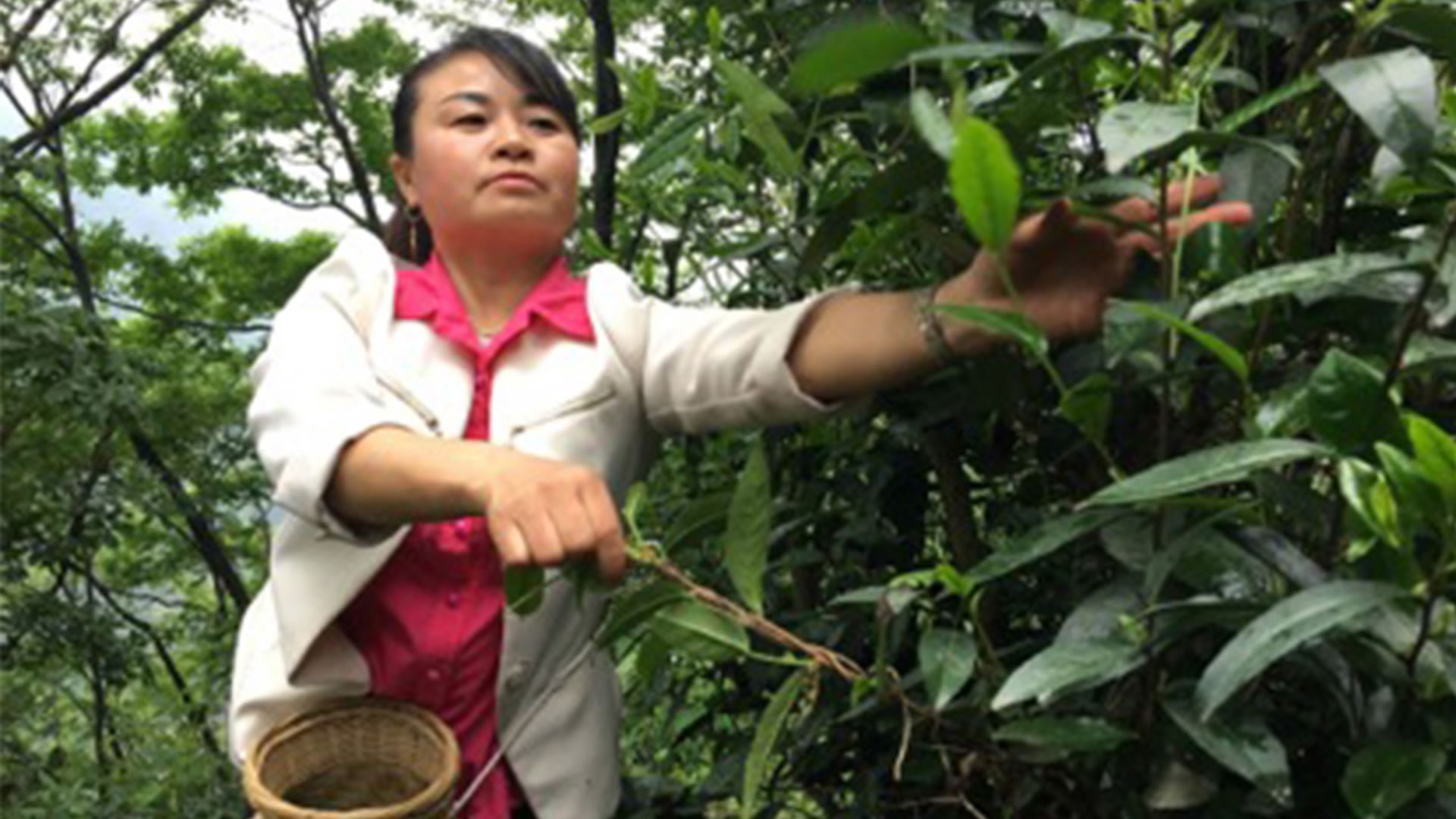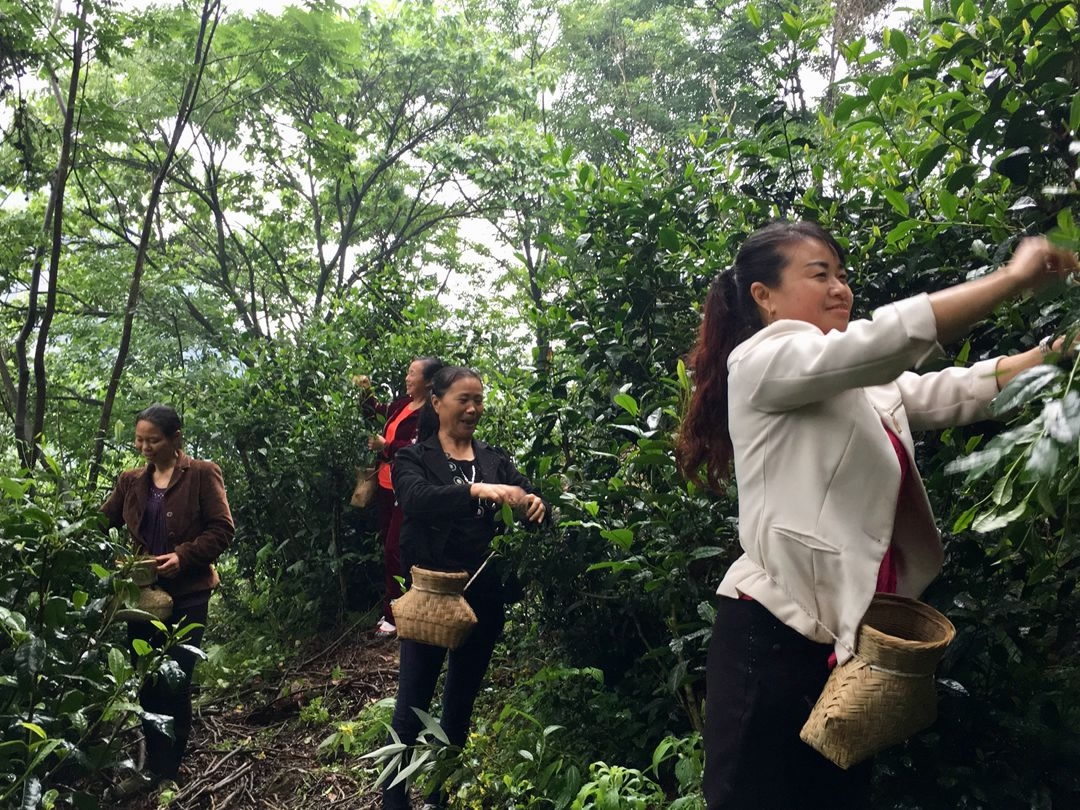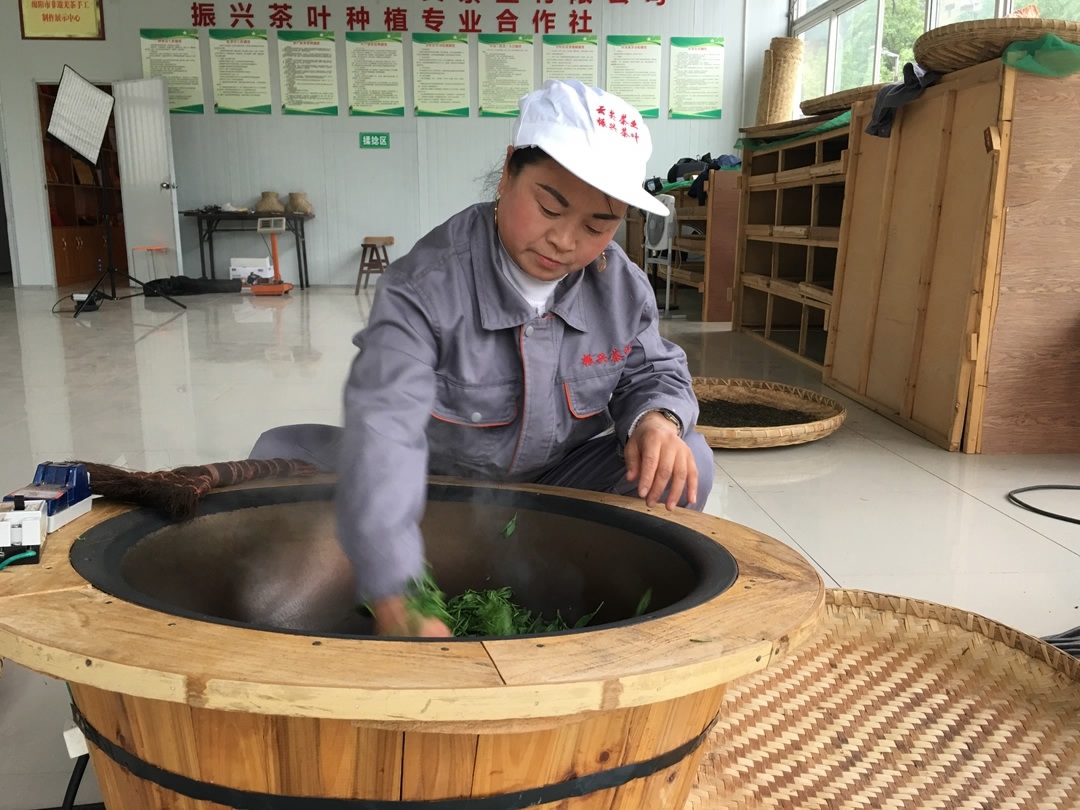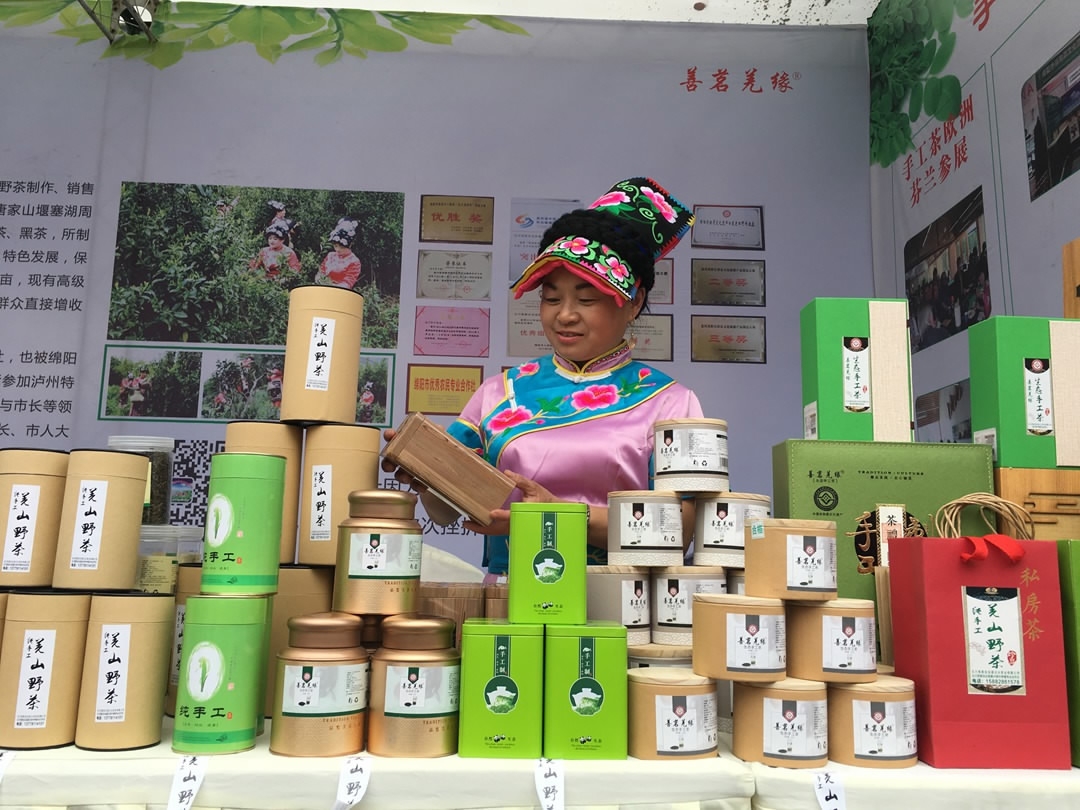
Business
11:58, 13-May-2018
Wenchuan Earthquake 10 years on: Survivors brew up new hope from handmade tea
CGTN's Yang Jinghao, Luo Caiwen
03:09

Wu Hong’s life seems destined to be associated with tea.
When the catastrophic earthquake struck her hometown Beichuan in southwest China’s Sichuan Province 10 years ago, a fallen tea tree protected her from the boulders. That’s when she came up with the idea of starting her tea business.
“It’s the tea trees that saved my life,” said Wu, who has been picking tea leaves in the wild since childhood.

Wu Hong is joined by villagers in picking tea leaves on a mountain in Beichuan. /CGTN Photo
Wu Hong is joined by villagers in picking tea leaves on a mountain in Beichuan. /CGTN Photo
Beichuan was one of the worst-hit areas when the 8.0-magnitude earthquake happened. According to official data, more than 15,000 people from the autonomous county of the Qiang ethnic minority lost their lives in the disaster, including Wu’s husband and son.
Wu told CGTN that her husband was working on a construction site in Beichuan at the time, while the boy was at Beichuan Middle School, which was almost completely razed by the tremor.
Despite the great blow, Wu decided to rise from the ashes on her own strength. In 2010, she established an agricultural cooperative of local tea, with compensation granted to her as a result of the twin deaths as initial capital.
“I thought we shouldn’t just live for ourselves, and I just hoped that I could help other villagers find a way out together,” said Wu, adding that the tragedy has changed her outlook on life.
However, she encountered unexpected obstacles along the way.
“I first asked five households to join me but they all refused, as they had no idea about agricultural cooperatives and they worried they might suffer greater losses if it failed,” she said.
Wu Hong didn’t give up. She kept selling her bold ideas to the villagers while exploring tea-making techniques from different places. Years on, more than 100 families have joined the cooperative so far with capital or tea gardens. Some villagers are also employed to at the production site.

Wu Hong fries tea leaves with her hands. All the tea in her cooperative is handcrafted with more than 10 steps. /CGTN Photo
Wu Hong fries tea leaves with her hands. All the tea in her cooperative is handcrafted with more than 10 steps. /CGTN Photo
Wu is proud of her products. All of her tea trees grow in the wild naturally, without any fertilizer or pesticide applied. And the tea is made in a very traditional way –handcrafted in about 10 steps – making it distinctive and increasingly popular in the market.
“I will never use machines even if it limits what we can produce,” Wu said.
The cooperative produces some 1,500 kilograms of tea annually, bringing considerable benefits to shareholders.
Chen Daifeng, a local villager, told CGTN that in the past, her family could only earn about 1,000 yuan (about 158 US dollars) annually from selling tea leaves. Now they can earn about 8,000 yuan (about 1,263 US dollars) by selling to the cooperative, working at the facility and getting subsidies of multiple forms.

Wu Hong exhibits her products at a trade fair in Beichuan. /CGTN Photo
Wu Hong exhibits her products at a trade fair in Beichuan. /CGTN Photo
Xie Chunmei is Wu Hong’s daughter. The 22-year-old was at primary school when she lost her father and brother. She is now a skillful teamaker and specialist.
“I’ve been devoting myself to tea since last year. I really enjoy what I am doing and I am determined to provide the consumers with top-quality products,” she said, adding that she would carry on her mother’s undertaking with gratitude and optimism.
Wu said the scars from the earthquake would never be erased, but she can only move forward with a positive attitude, just as most of the survivors do.

SITEMAP
Copyright © 2018 CGTN. Beijing ICP prepared NO.16065310-3
Copyright © 2018 CGTN. Beijing ICP prepared NO.16065310-3